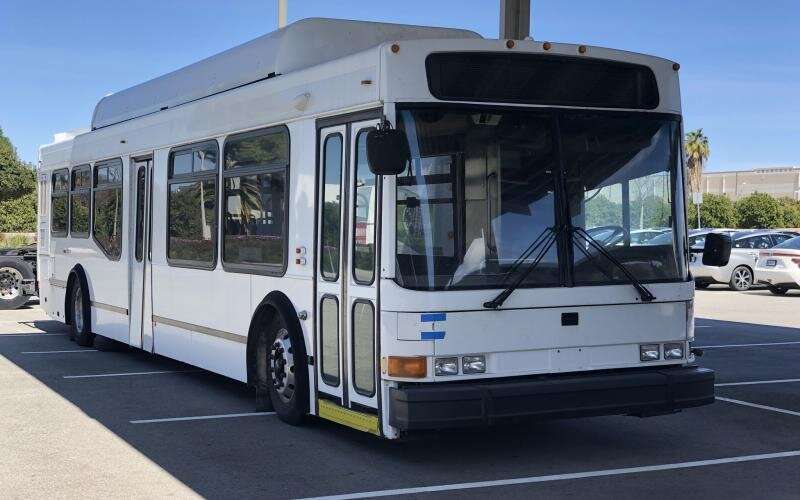Researchers from ORNL’s Vehicle and Autonomy Research Group created a control strategy for a hybrid electric bus that demonstrated up to 30% energy savings. Credit: University of California, Riverside
For a hybrid electric bus, Oak Ridge National Laboratory researchers have developed and demonstrated algorithm-based controls that yielded up to 30% energy savings compared with existing controls.
The Integrated Eco-Drive technology used a combination of powertrain control techniques, advanced machine learning and multiple sensors to determine an optimal driving speed that conserves the most energy. The technology, developed in collaboration with the University of California, Riverside, and US Hybrid Corporation, offers significant energy savings for medium- and heavy-duty vehicles operated on defined bus and delivery truck routes. The system was subsequently licensed by US Hybrid.
"Co-optimizing the combustion engine output, electric motor output and battery state of charge—and taking into account the repeated route—helps us ensure the best performance," said ORNL's Zhiming Gao.
"We can apply this same strategy to light-duty cars and trucks, especially networks of connected vehicles, and realize significant energy savings," ORNL's Tim LaClair said.
More information: Hao, Peng, Boriboonsomsin, Kanok, Wu, Guoyuan, Gao, Zhiming, Laclair, Tim, & Barth, Matthew. Deeply Integrated Vehicle Dynamic and Powertrain Operation for Efficient Plug-in Hybrid Electric Bus. United States. www.osti.gov/servlets/purl/1560399
Provided by Oak Ridge National Laboratory
























